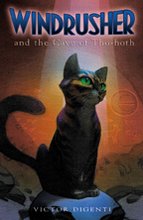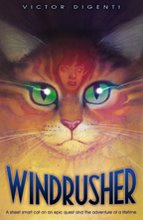There’s a fine line I try to walk as a writer of mysteries. My goal is to create a compelling story filled with ever-rising tension and conflict as background for a cast of memorable characters. Together the characters and plot should jump off the page and form an adhesive bond with the readers. Like most writers, it’s hard to be objective about our own work, but we usually know when the story rings true. When we’ve created the illusion of realism in our fiction.
And that’s part of the balancing act. Truth and realism. The real world overflows with the all too true realism of death and destruction. We live it through the 24-hour news cycles that inch us closer and closer to paranoia, one gruesome story at a time. Today it’s a school shooting in Ohio. Tomorrow, another bombing in Afghanistan. My protagonist, Quint Mitchell, is certainly aware of this creeping paranoia. He opens Matanzas Bay with these words:
People who grumble about life being unfair have it all wrong. It’s life’s alter ego, death, that isn’t fair. Pick up the paper. Turn on any of the twenty-four hour news channels. See what I mean?
And he continues in that vein, listing some of the crimes that have galvanized the media’s and America’s attention over the past few years. These stories were front and center for a few days or weeks, until the next big scandal or missing child case came along. So sometimes I have to ask myself isn’t there enough misery in the world without fabricating more? Shouldn’t I be spending my golden years in more uplifting pursuits, or at least not contributing to the avalanche of violence that’s the mainstay of so many novels these days, no matter what the genre — mystery, thriller, suspense or horror?
Specifically, should I include these kinds of descriptions in my books?
Marrano’s head had a deep indentation over the left temple. Blood had seeped from the wound and caked along the left cheek in dried rivulets.
That comes fairly early in Matanzas Bay, after Quint unearths the body of St. Augustine’s vice mayor in chapter one. It’s not exactly the stuff of musical comedy, is it? Rest assured this is tame compared to many of the novels I’ve read. And it’s probably tame compared to the grisly cases real life cops see. Even so, many people read to be entertained, not grossed out. These are the folks who might enjoy cozy mysteries where the violence usually happens off stage, and the crime is solved by an amateur detective while working her pet-sitting job.
So why do we write such graphic passages? Why stress the negative side of life when we could accentuate the positive?
I could argue that hard-boiled crime fiction is just as entertaining as the soft-boiled variety. That there are many readers who enjoy the intellectual exercise of matching wits with the police and the detectives to solve the crime before the novel’s hero has an epiphany. There’s also a certain satisfaction to be found in living vicariously as the hero faces danger and death.
I know that my heart was racing when Quint stood outside the St. Augustine Alligator Farm late one night to meet an informant.
Out of the corner of my eye I spotted a dark shape rise up from behind the thick foliage. My muscles tensed. Adrenaline spiked into my system. I pivoted toward the hedge, raising the gun as I turned …
Well, you’ll have to read the book to learn what happens to our hero. But be forewarned, you may look at the Alligator Farm a bit differently after you’ve read that chapter.
I don’t think writers are much different than ordinary people. What was it that Shylock said in The Merchant of Venice? “If you prick us, do we not bleed? If you tickle us, do we not laugh? If you poison us, do we not die?”
True enough, particularly the poison part. Yet when I sit down at the computer it’s more likely I’m communing with the dark side rather than with the better angels of my nature. And it’s not for the shock value alone. If I do my job right, my story can ferry readers away from their everyday lives into a fictional world where they can forget their troubles for a few hours, maybe even feel intellectually superior if they solve the case before the protagonist. All of this and more can happen between the pages of a book.
If you haven’t read Matanzas Bay, I believe you’ll find it’s that kind of book. It’s filled with surprises, and it has a character you can believe in. Quint Mitchell is not a superman, but he’s good at his job and he wants to do the right thing. Yes, it has its share of violence. After all, Matanzas is Spanish for place of slaughter. But fictional violence is just that—fiction. A good book can help us forget the real violence that permeates our society. And maybe that’s why I chose to write mysteries.











